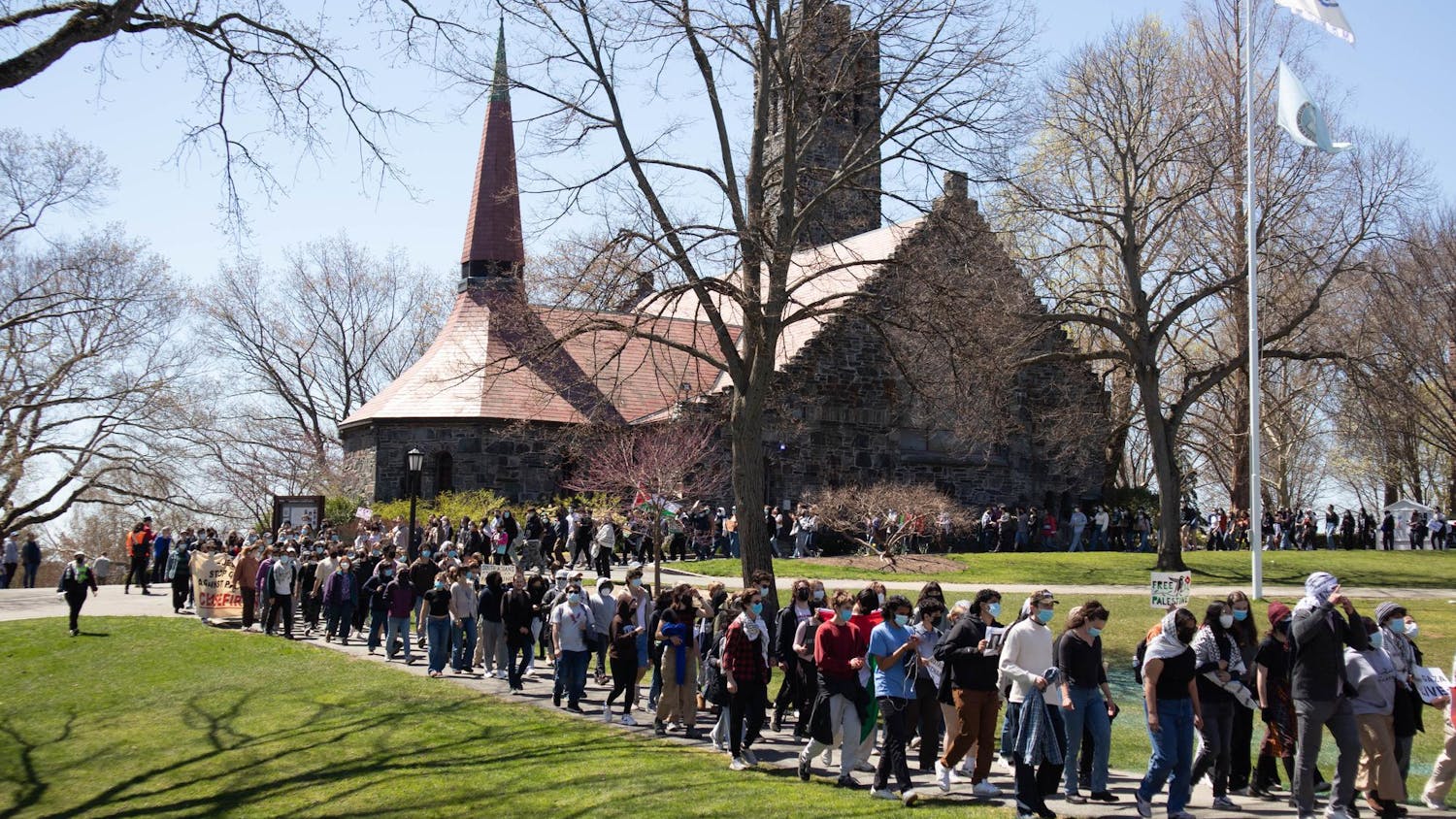If you spend most of your time at Tufts and rarely venture off campus for anything more than a latte at Starbucks or a movie in Davis Square, you might become convinced that there no longer is a world outside the gates of our Medford/Somerville campus. Even if you regularly visit, shop and dine all around the Boston area, it's easy to forget what real life away from Tufts is like. It happens to me on occasion. I get stuck in a routine: wake up, go to class, club meetings, anti-bias rallies, party on the weekend, then repeat ad nauseum. It can be difficult to keep in touch with what happens in the "real world" when we're so insulated inside the Tufts Bubble.
Likewise, people can forget societal norms and the way things tend to work elsewhere when they are at Tufts for long stretches. When I go home for a weekend or for break, I'm often surprised that my friends do, in fact, say words like "fag" without a second thought about the impact it might have. After freshman year, I got in a serious argument with a good friend of mine over his use of that word because after living at Tufts, I knew that it promoted societal bigotry and heteronormativity (a word that, honestly, I have never heard outside of Tufts).
Then, as I became re-attuned to the norms of my hometown, I started thinking that if he wanted to use "fag" as an insult after I had laid out my arguments against it, I really had no place to tell him otherwise. Unlike Tufts, the real world — in my experience, at least — doesn't have a bias awareness team; there is no thought police, and so slurs which really hurt people are occasionally uttered.
I'm not sure that I made the right decision to overlook future uses of the word, but I was concerned that I was starting arguments for the wrong reasons — I was never personally offended by the word "faggot," but I still thought I should try to stop it from being used, for whatever reason. Doesn't it feel good to accuse someone of bigotry? I enjoyed it, I really did. The moral indignation and self-righteousness just flowing through your veins — you feel empowered, like you've grabbed the higher ground and you're not giving it up. In that moment, it feels good to be angry because you're right, the "other" is wrong, and you're fighting the good fight.
This is what occurred with many of those at the anti-bias, anti-drunk-freshman rally on Thursday. Even people from outside Tufts came and basked in the glow of righteous indignation emanating from people at the rally who take any and every opportunity to get angry and offended, regardless of whether they themselves have been specifically targeted. It becomes like an addiction — if you're not decrying racism or sexism or whatever the -ism of the day is, you start to feel adrift and without direction. But that doesn't justify the idiotic behavior being exhibited.
The real anger we have all seen in the pages of the Daily and at the rally wasn't, in my opinion, over the alleged racial violence that occurred two weeks ago. It was about puncturing the Bubble. Let's admit: Most of us are very proud to tell people that we go to Tufts, and when something like this happens, it betrays the image most of us have of our school. We think we go to a progressive, unbiased university that is not only not racist, it's anti-racist.
So, when I write a column that questions the campus' reaction to a particular incident that seems extremely clear-cut to some, I become a target. I've been ridiculed for my opinions in any number of ways and called terrible names that I won't repeat in print, but the only comments that bothered me were those that suggested that there must be some unknown reason belying my opinions, whether it was my own race, my lack of education or sheer ignorance. I was told to take classes, read books, and even invited to meet by some readers, all in the interest of enlightening me and/or converting me to buy into every bit of liberal orthodoxy that Tufts represents to these individuals.
Want to know a secret? I have read books. I've taken classes that deal very explicitly with racism and discrimination, and I can't control my whiteness any more than the Korean Students Association students who were involved in the fight can control their race. The fact that I have a different point of view doesn't mean that I don't know or understand the issues, and this assumption that I must be unaware of critical race theory because I don't buy into it really bothers me.
This punctured my Tufts Bubble. I foolishly thought that, while Tufts has many viewpoints and a variety of backgrounds represented on campus, mutual respect exists which makes discussing and acknowledging our differences so fruitful and beneficial. I also was under the (apparently ridiculous) impression that no one's view would be disregarded or given less credence because of his or her background — even if that background is straight, white and male. It turns out that I was wrong.
--
Will Ehrenfeld is a junior marjoing in peace and justice studies. He can be reached at Will.Ehrenfeld@tufts.edu





